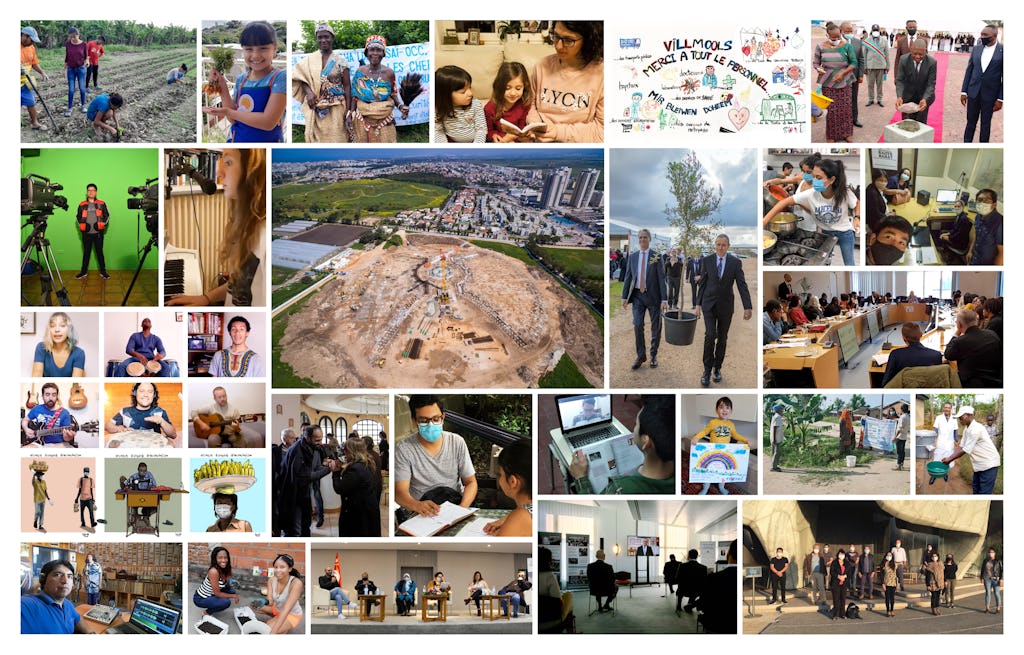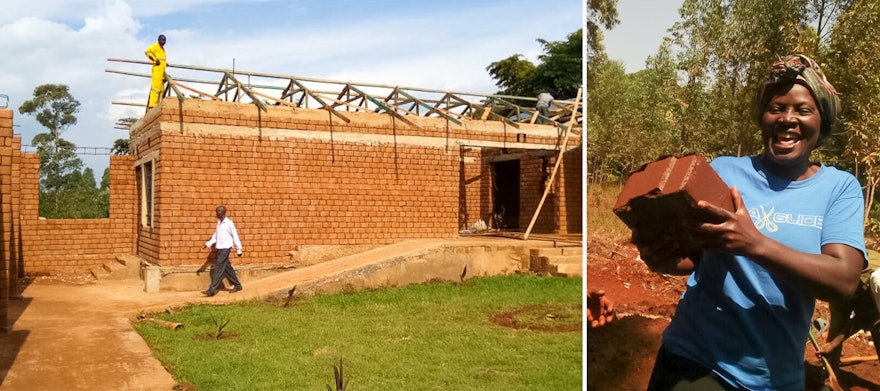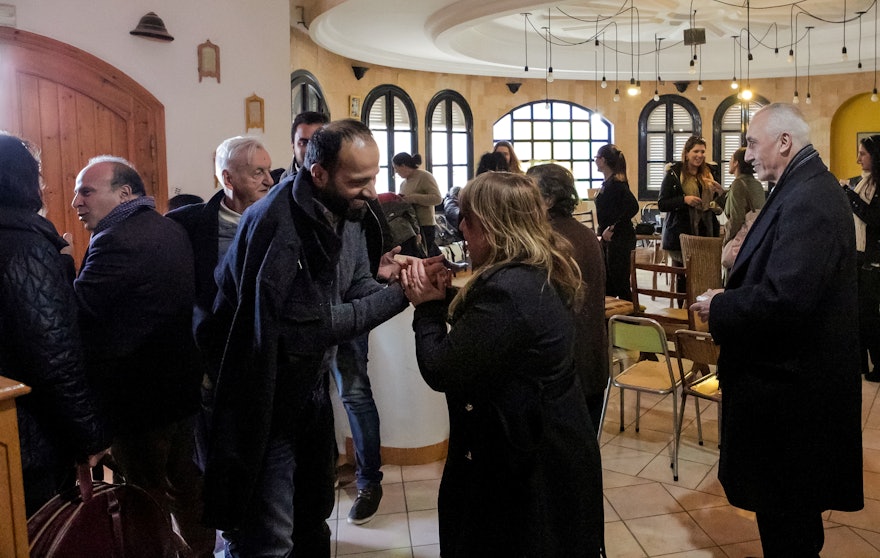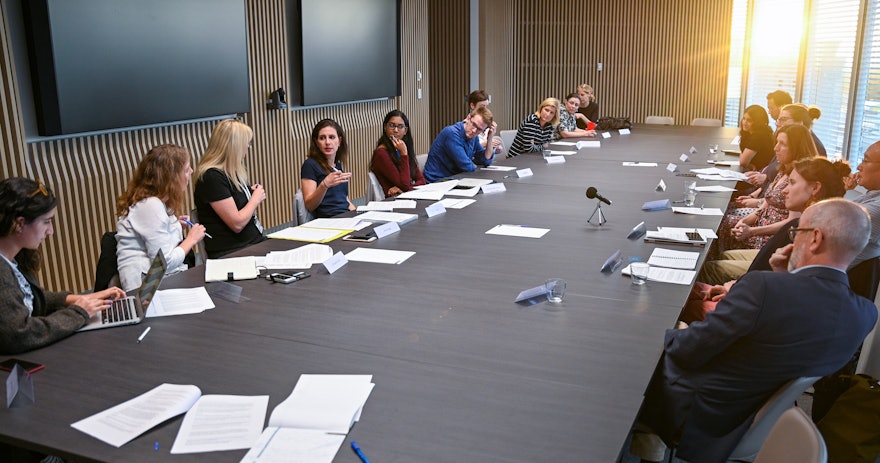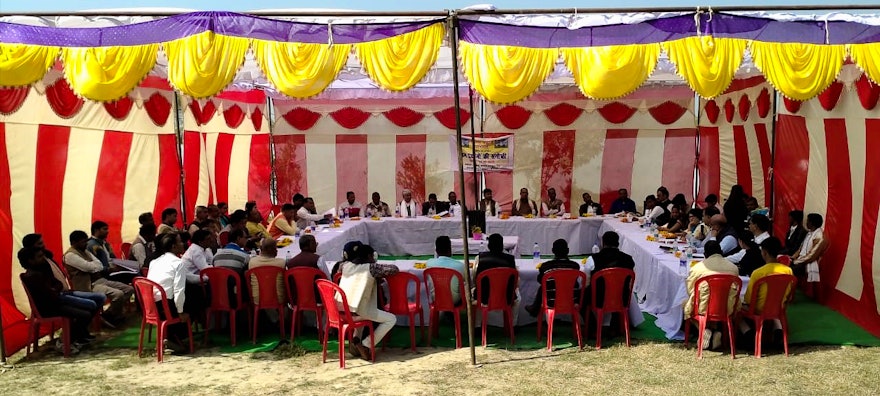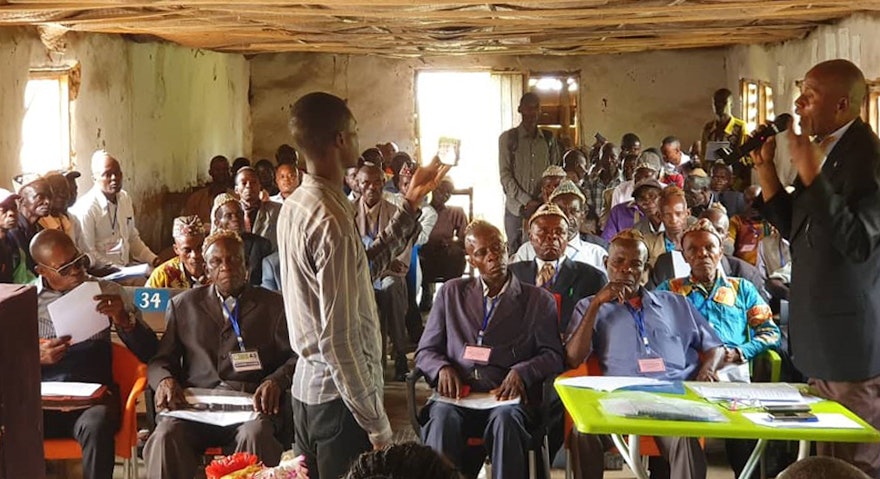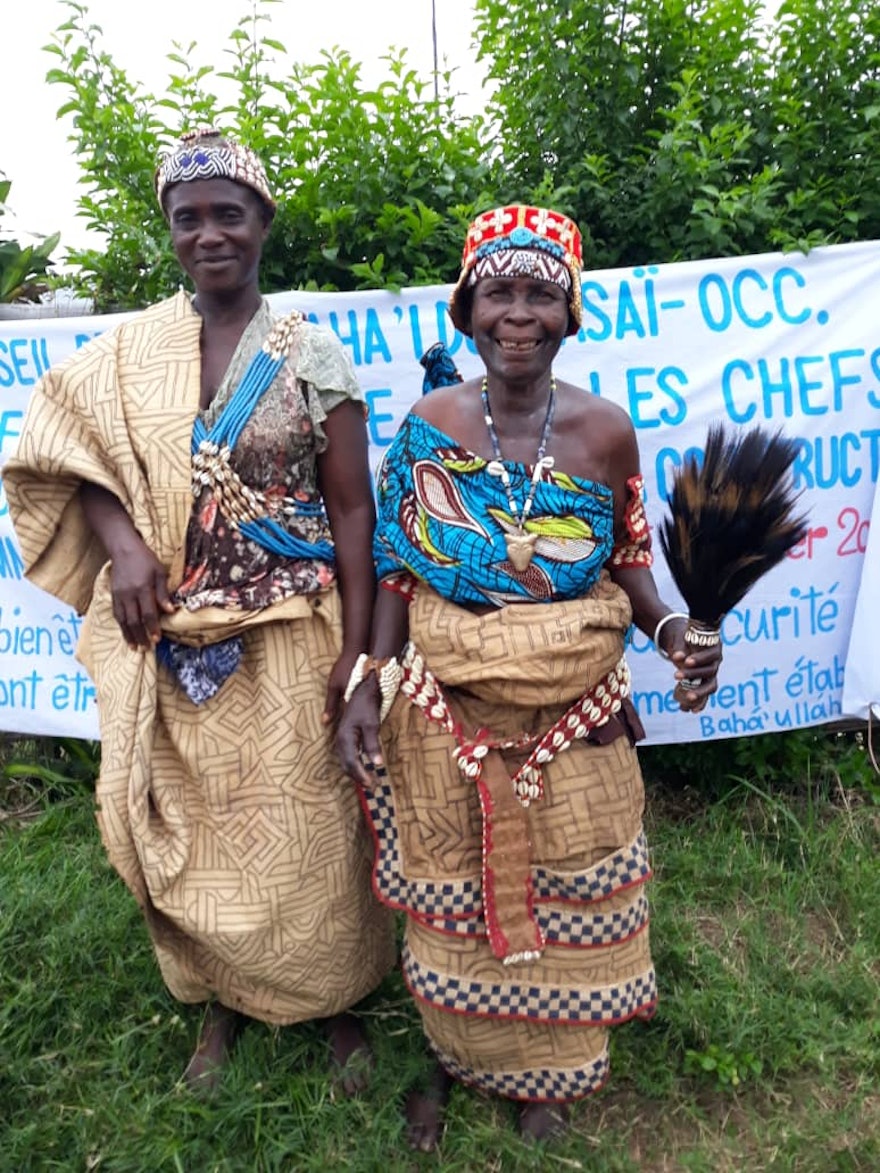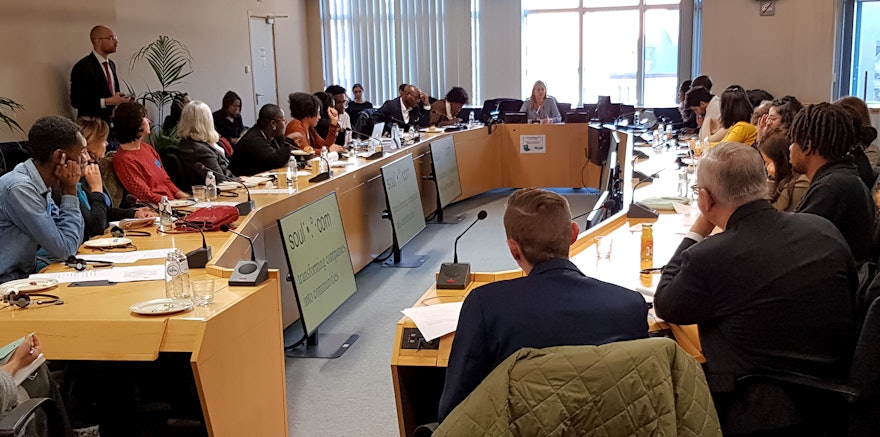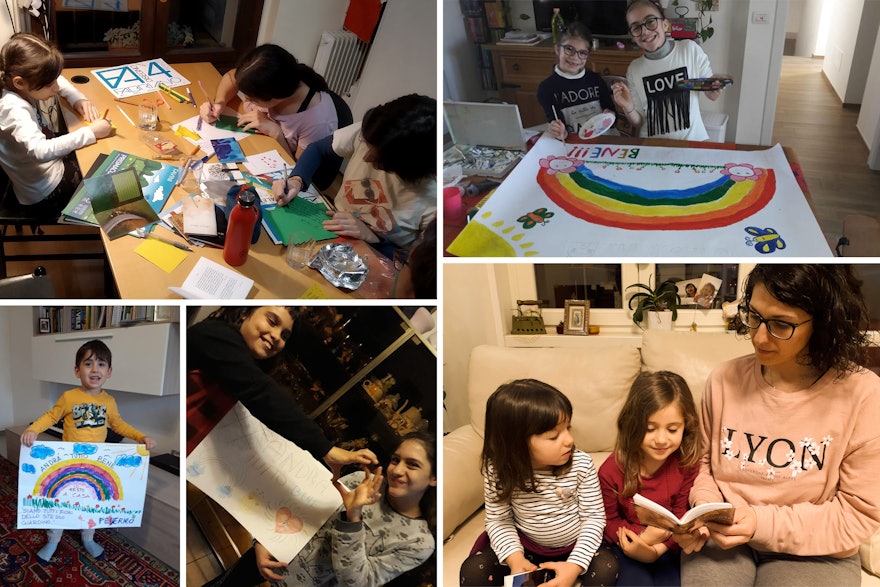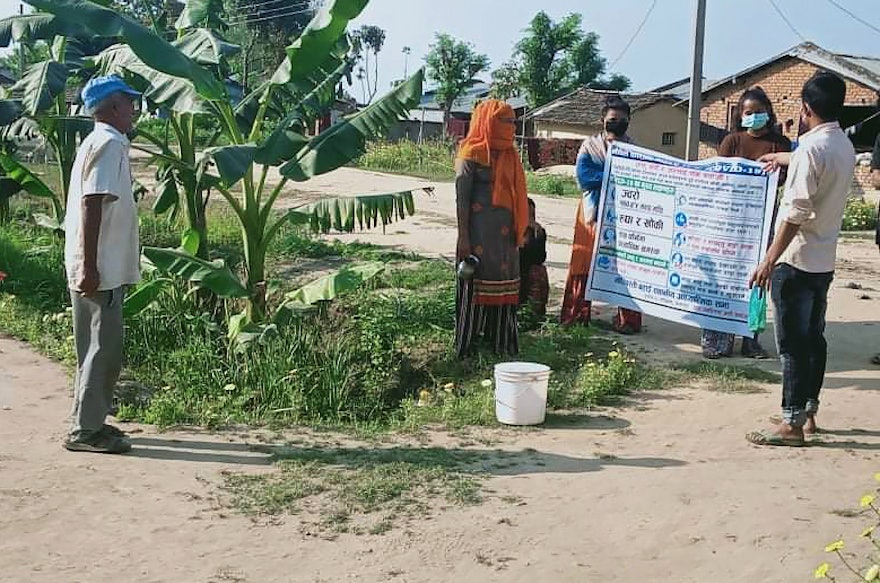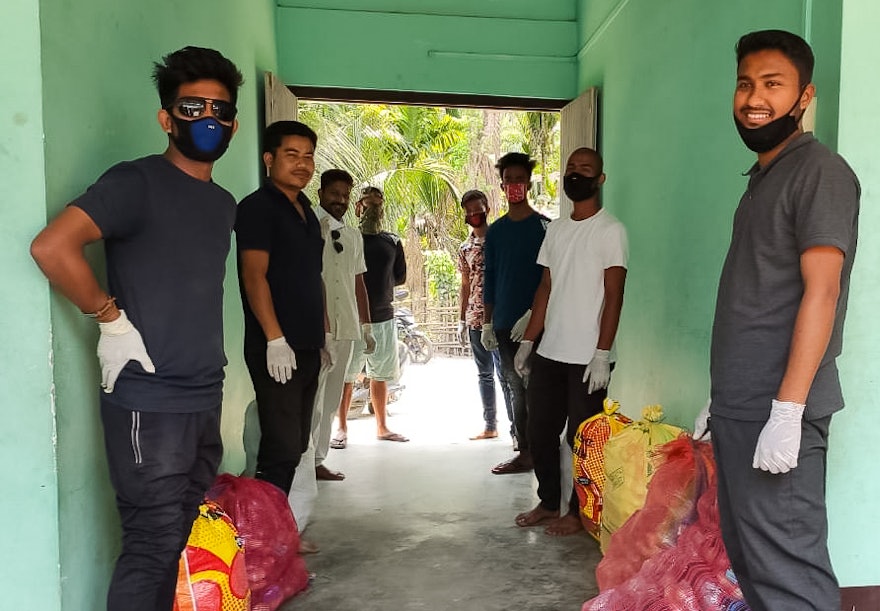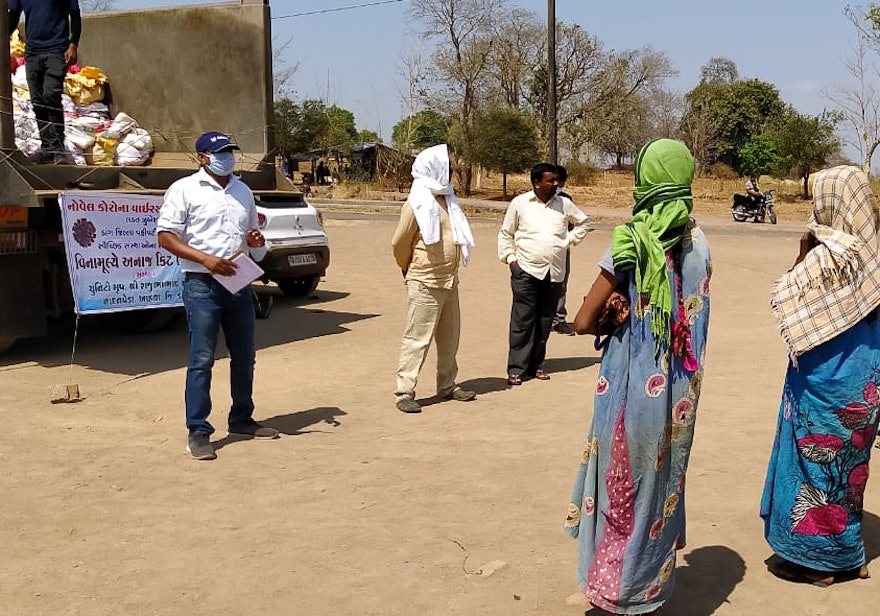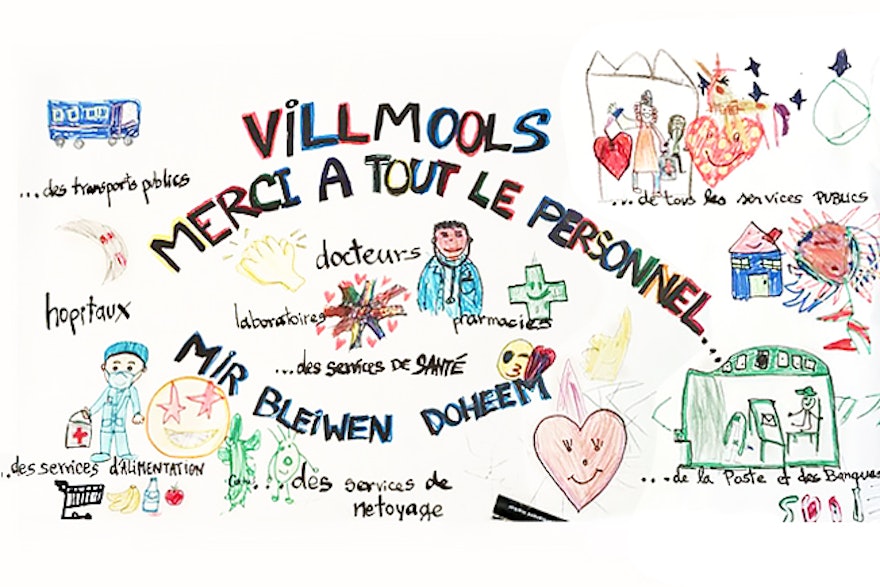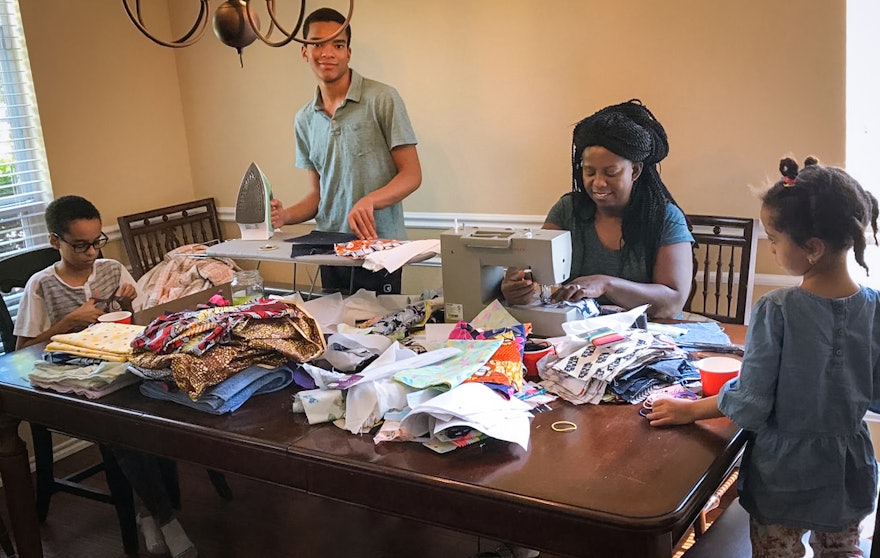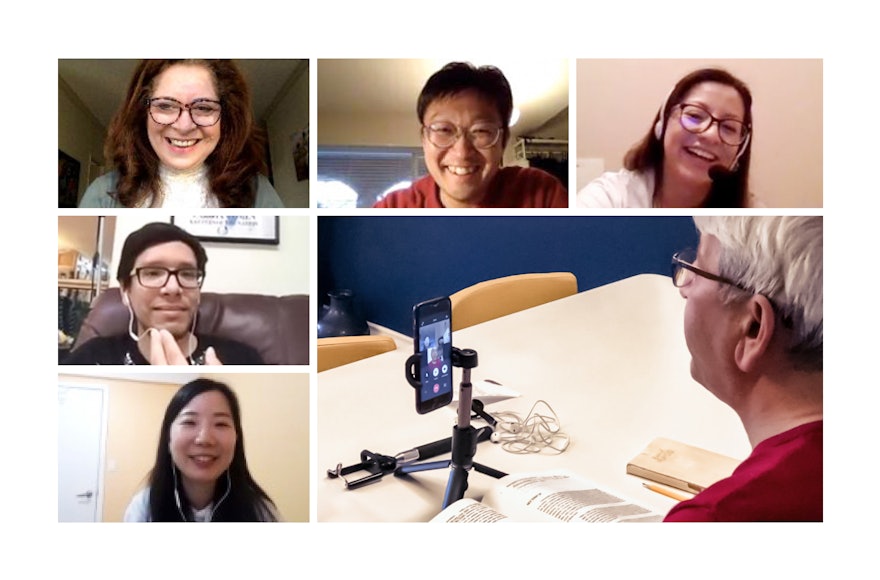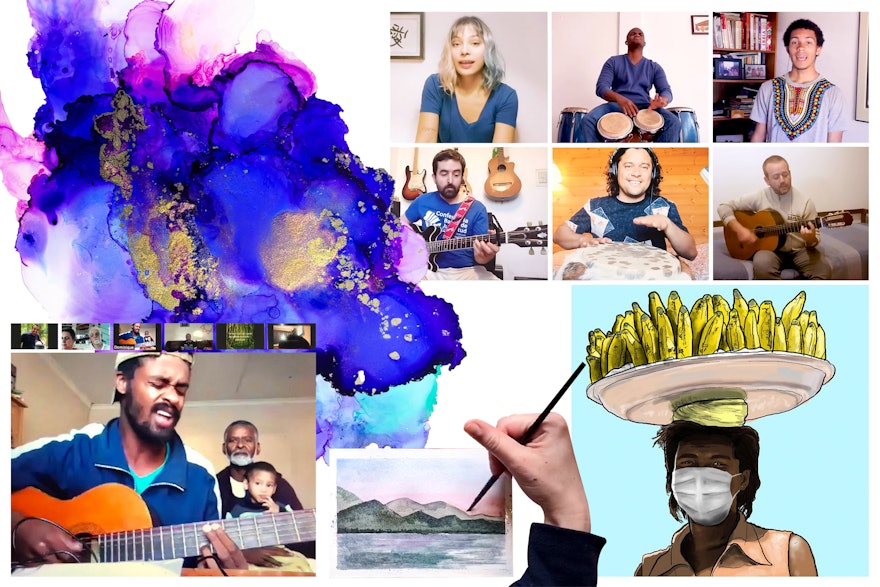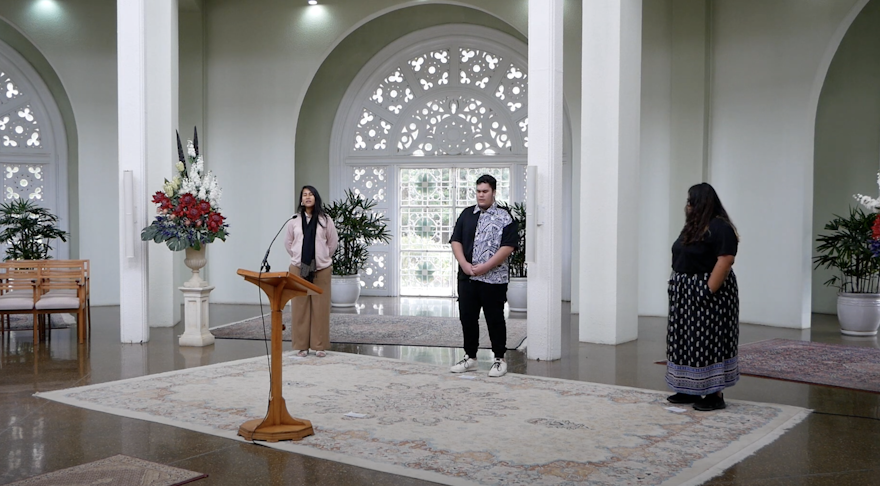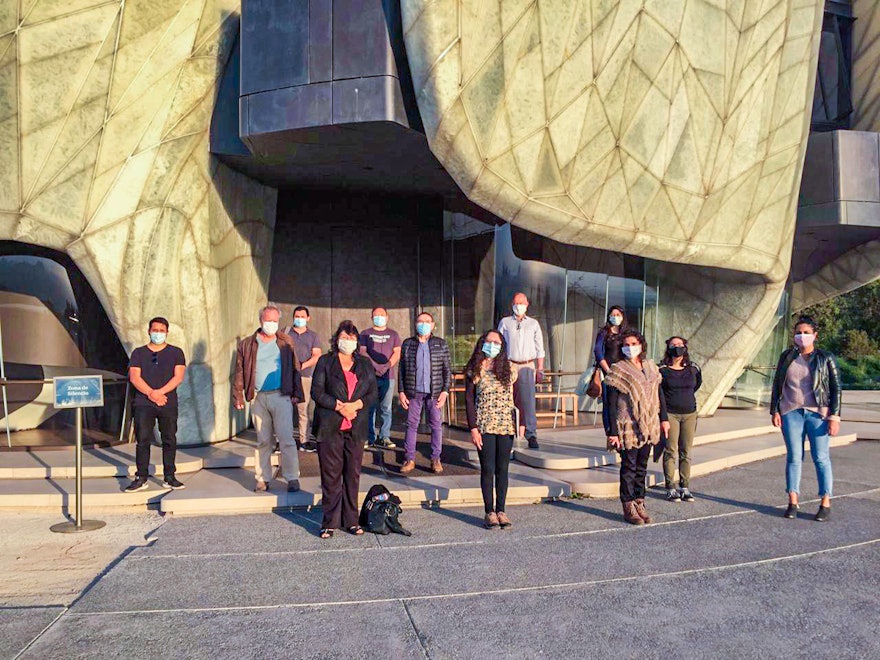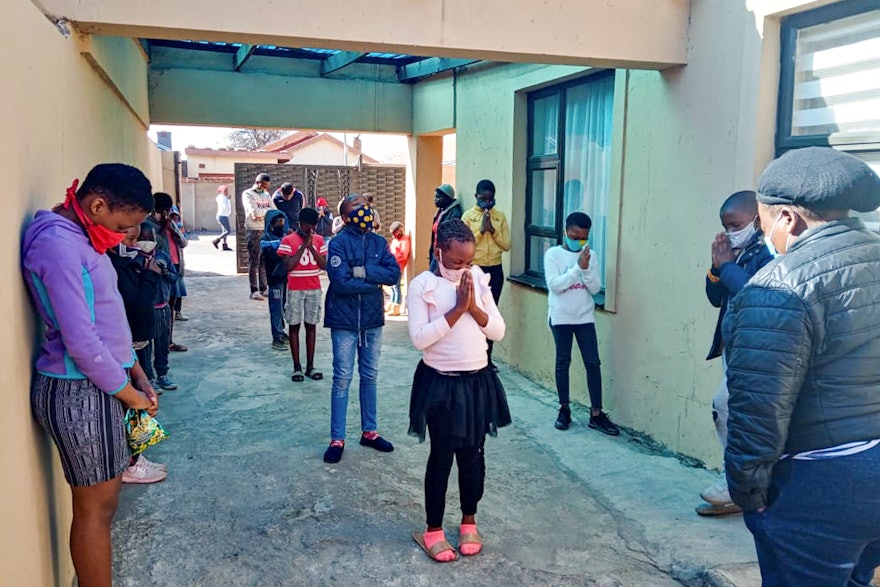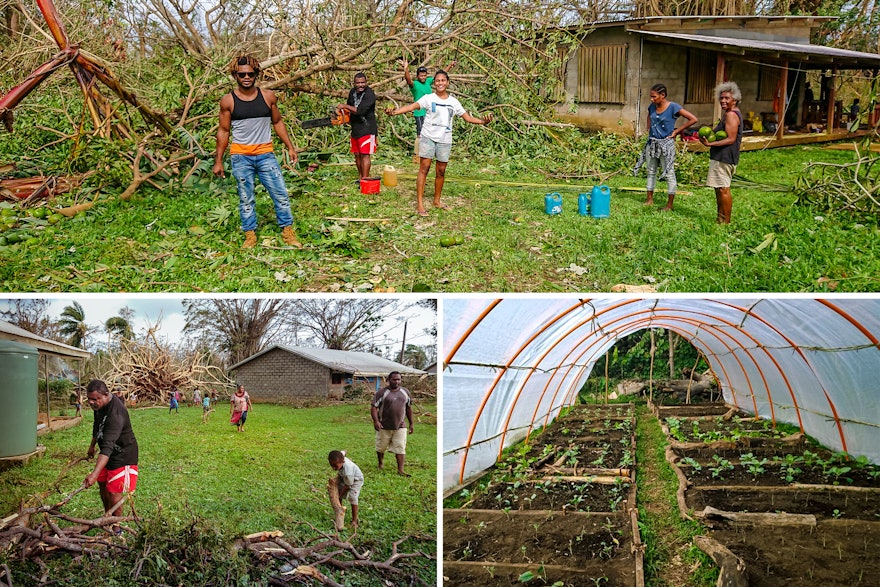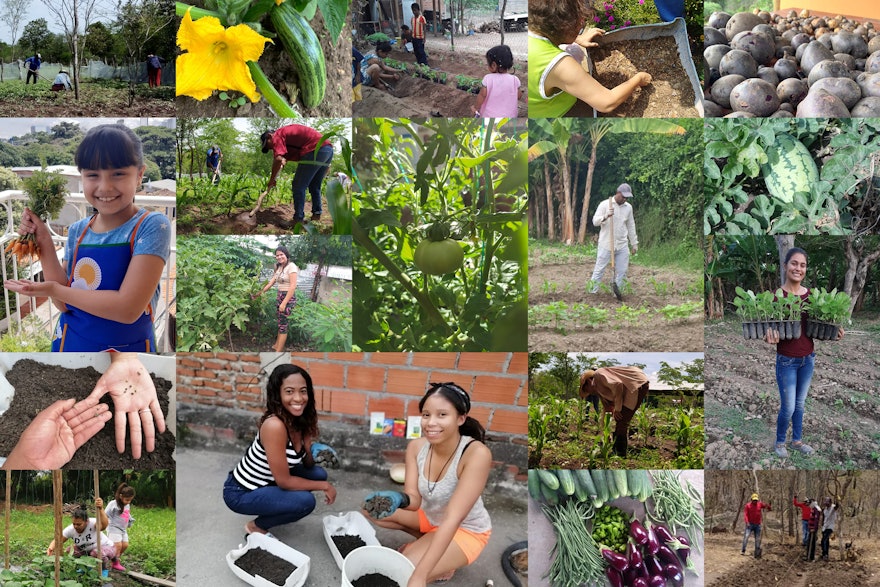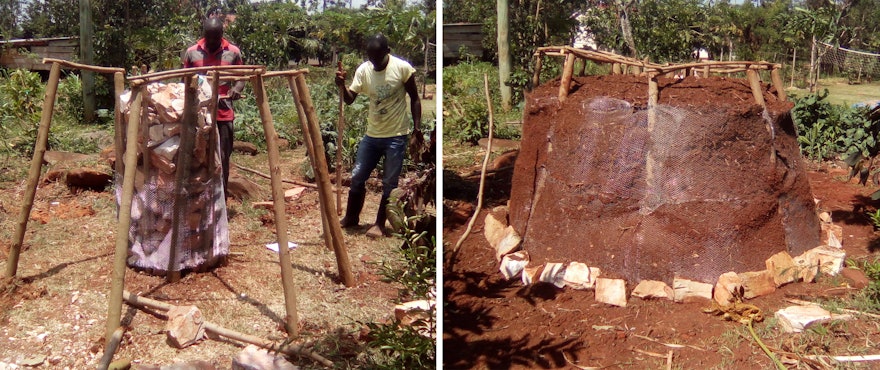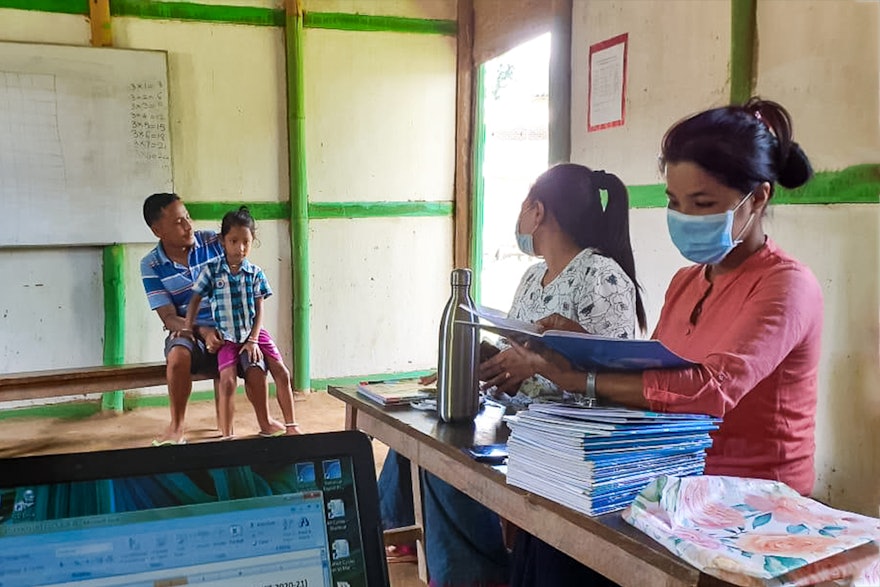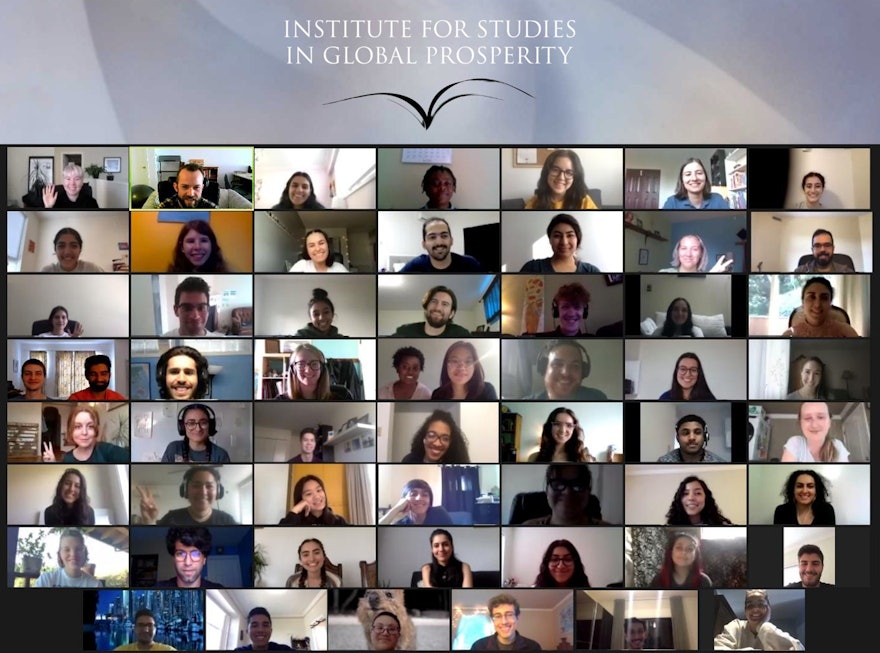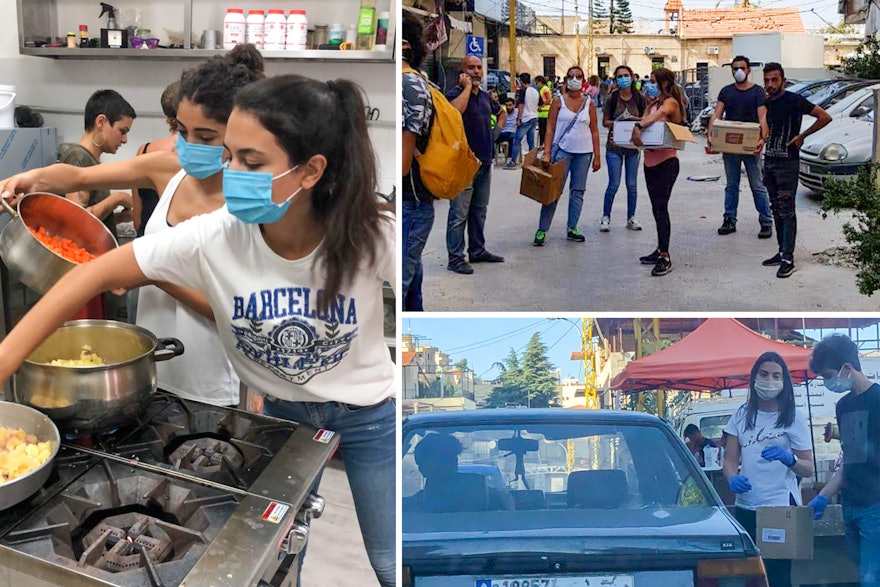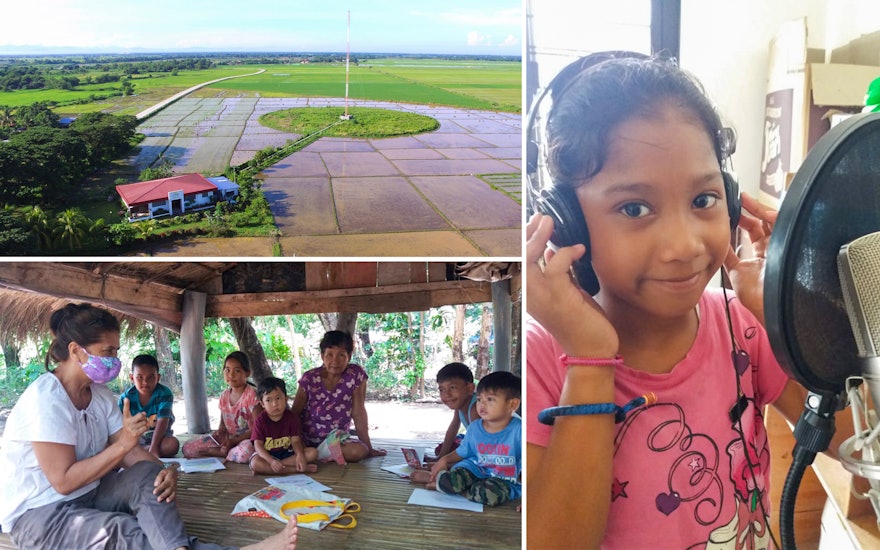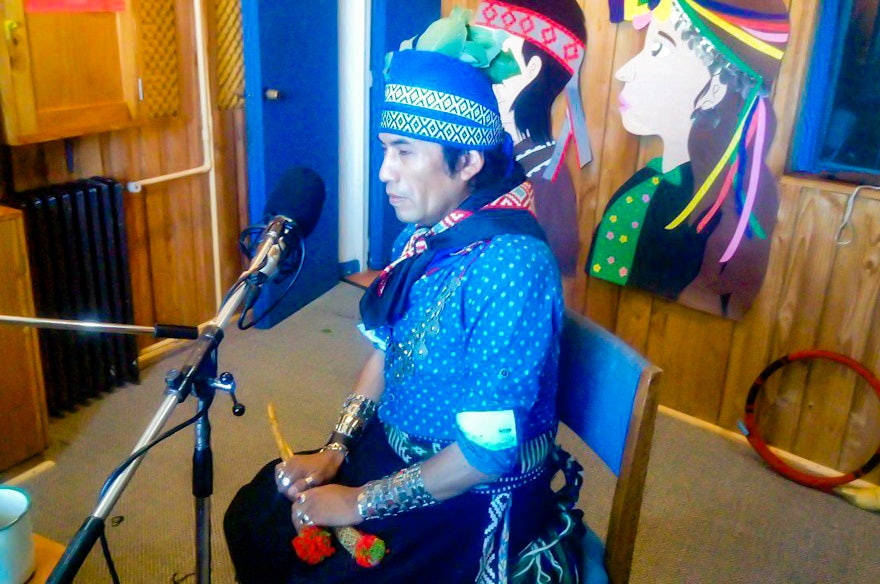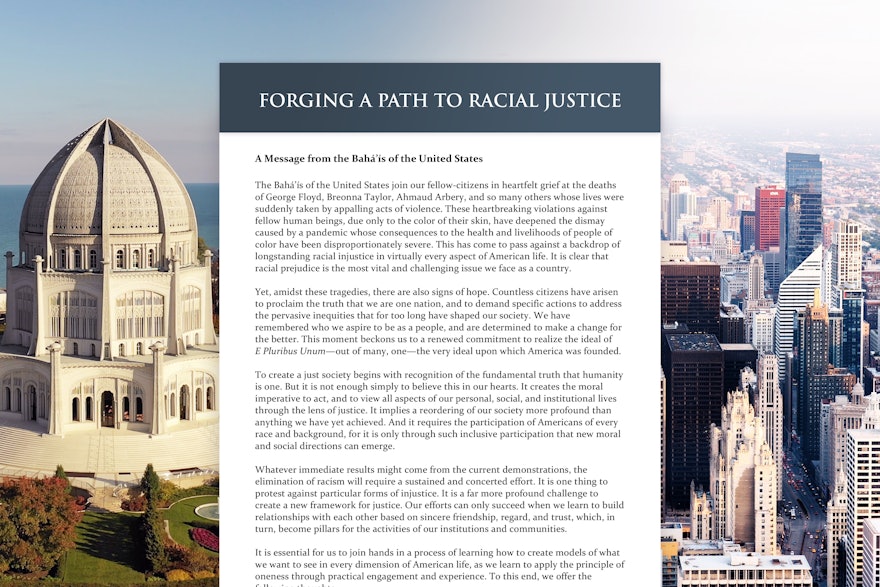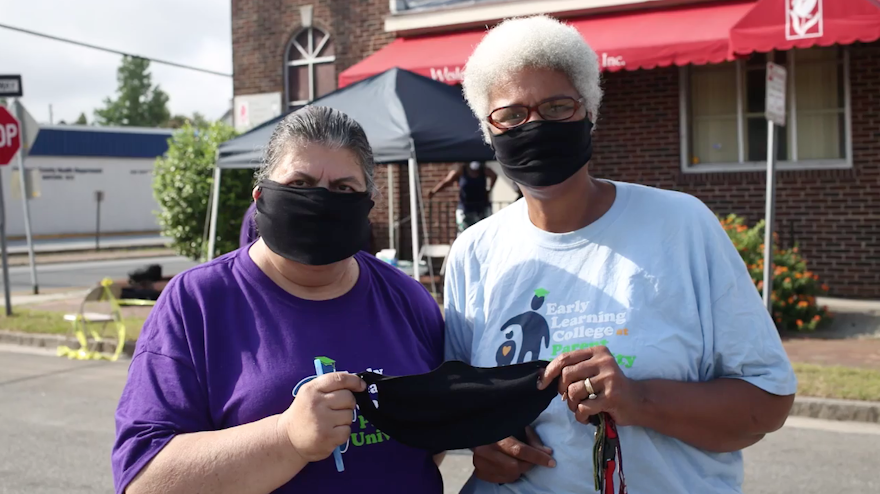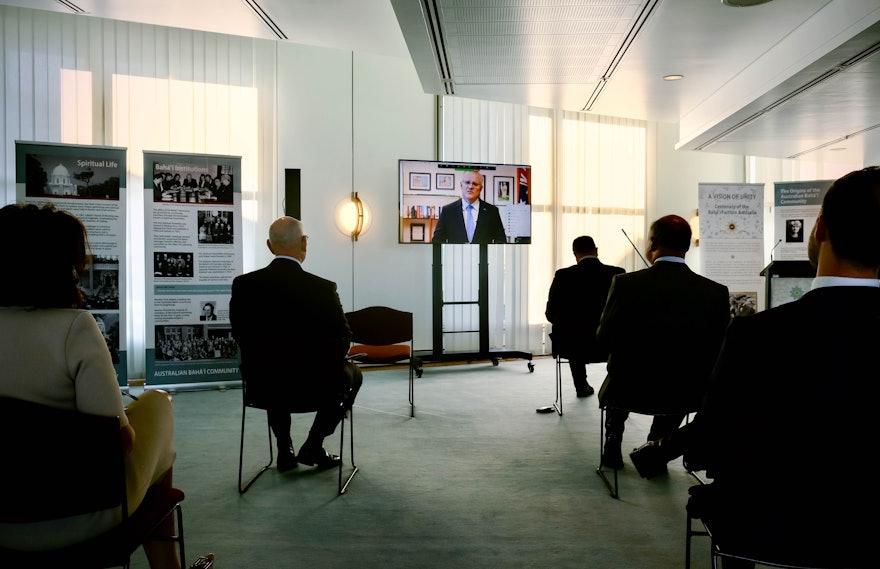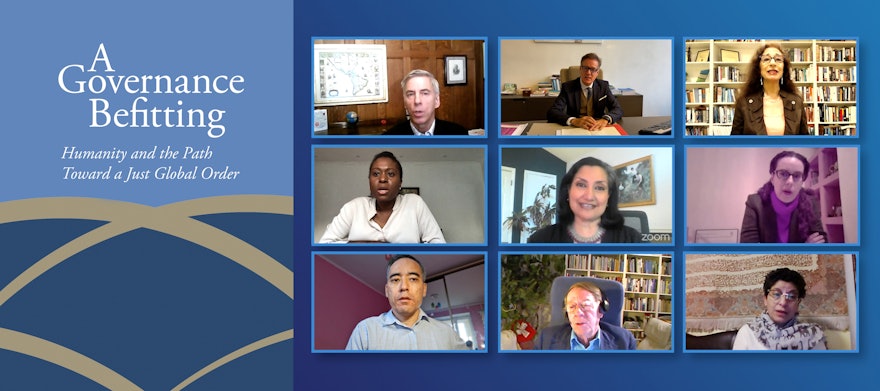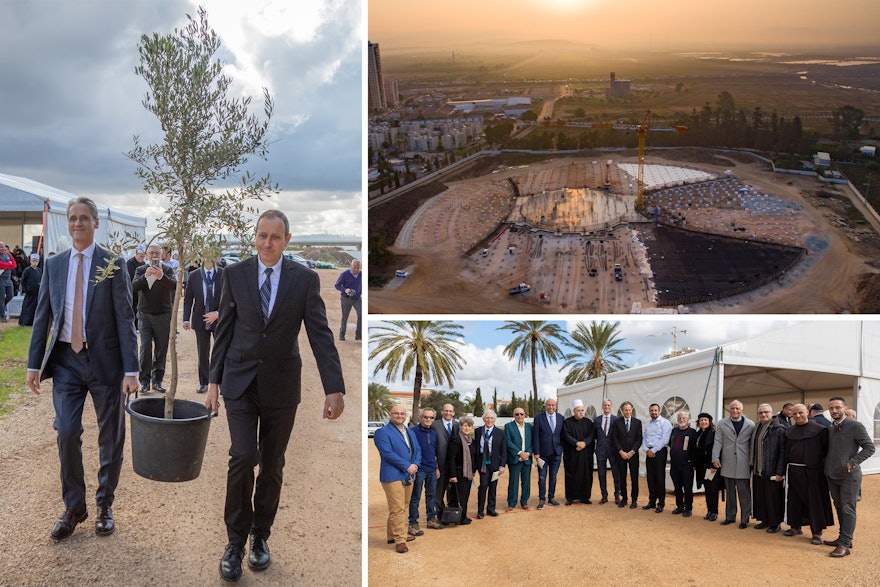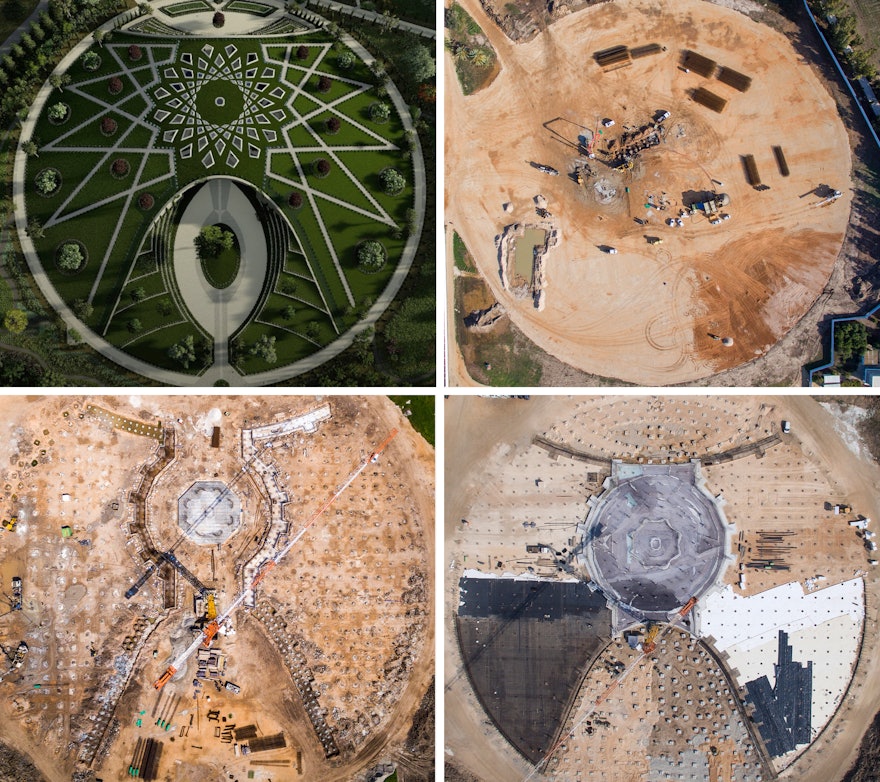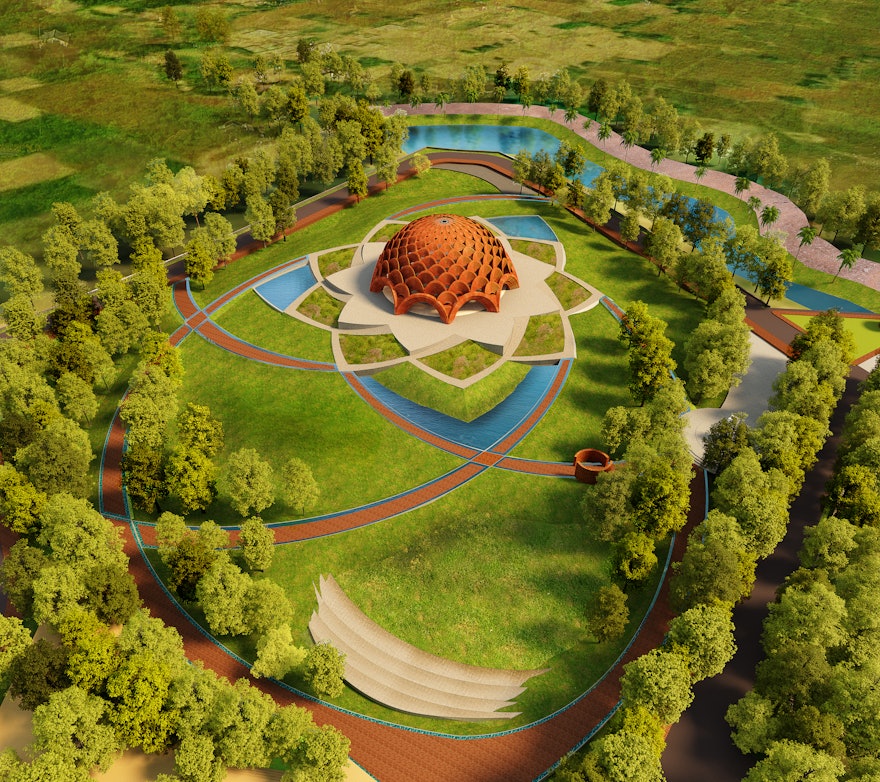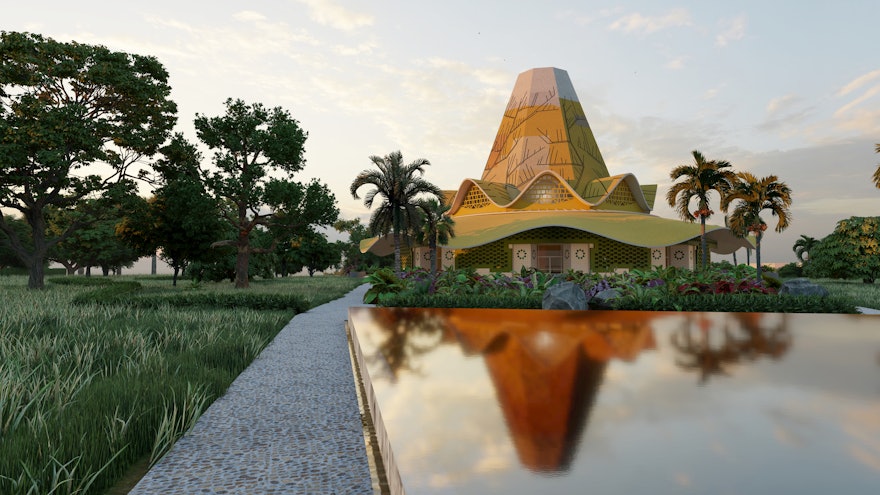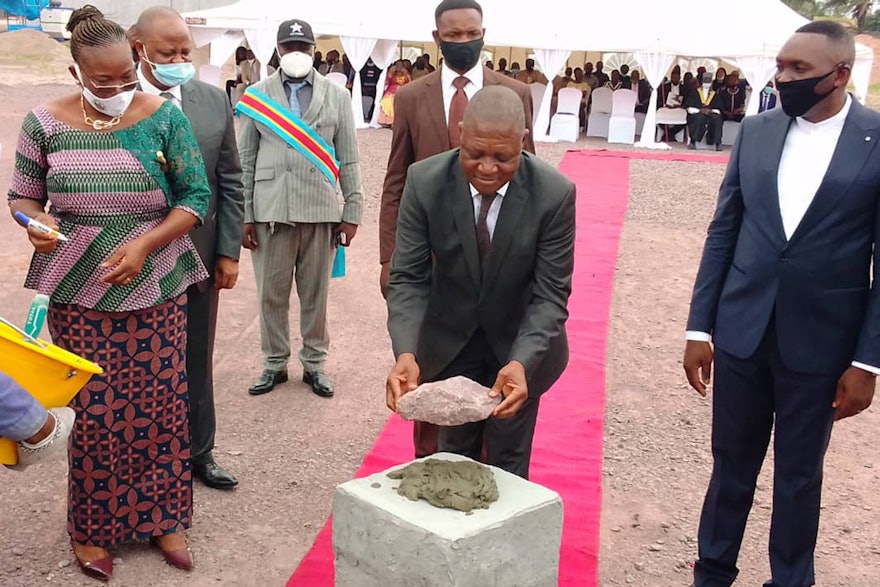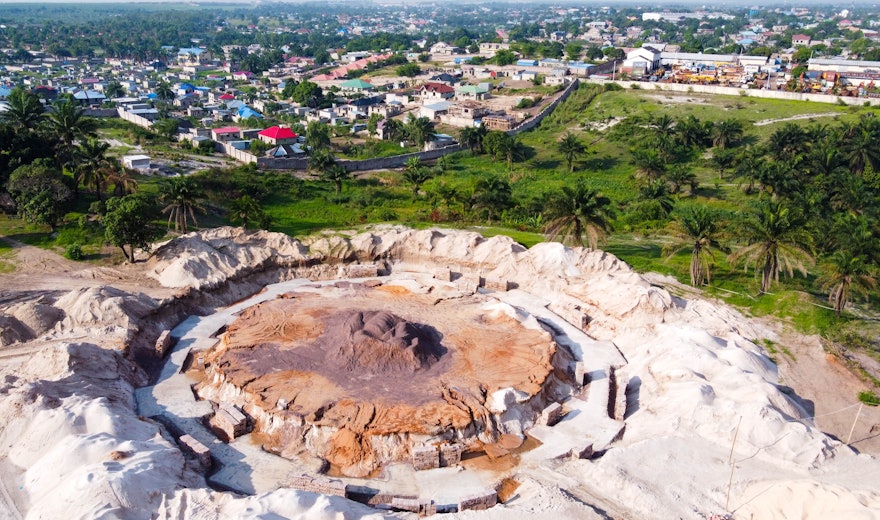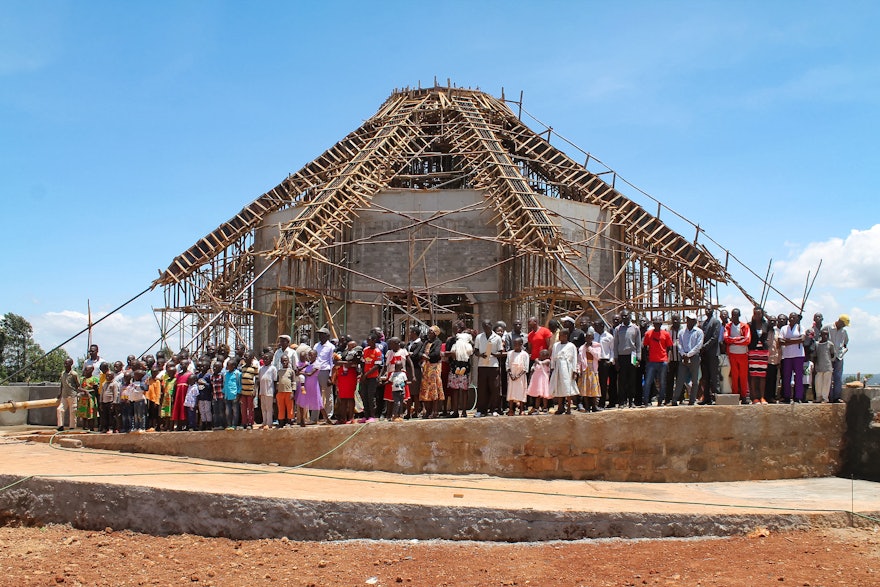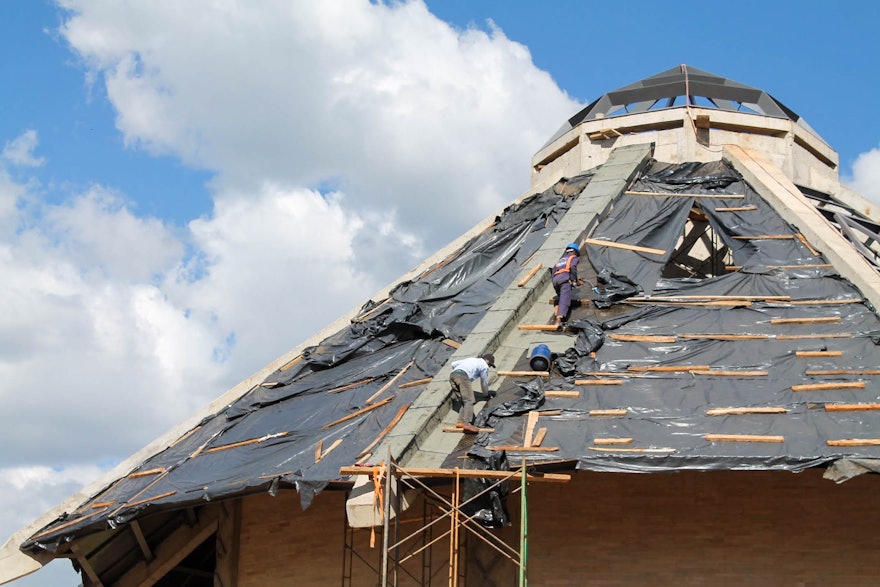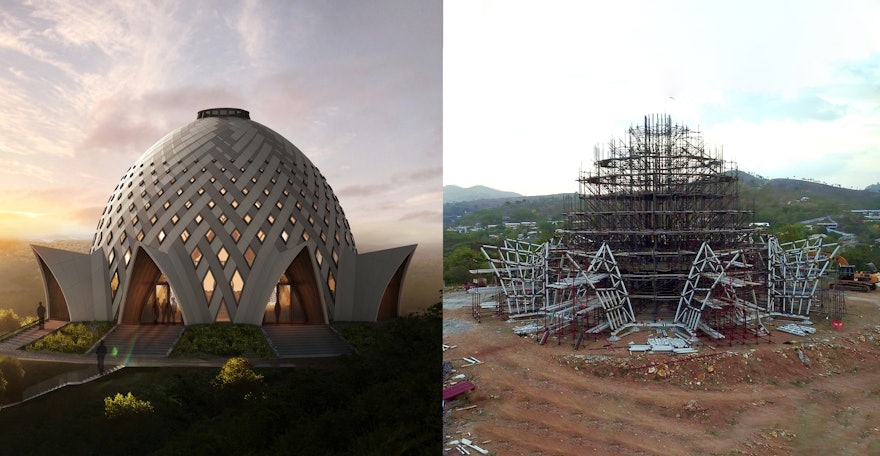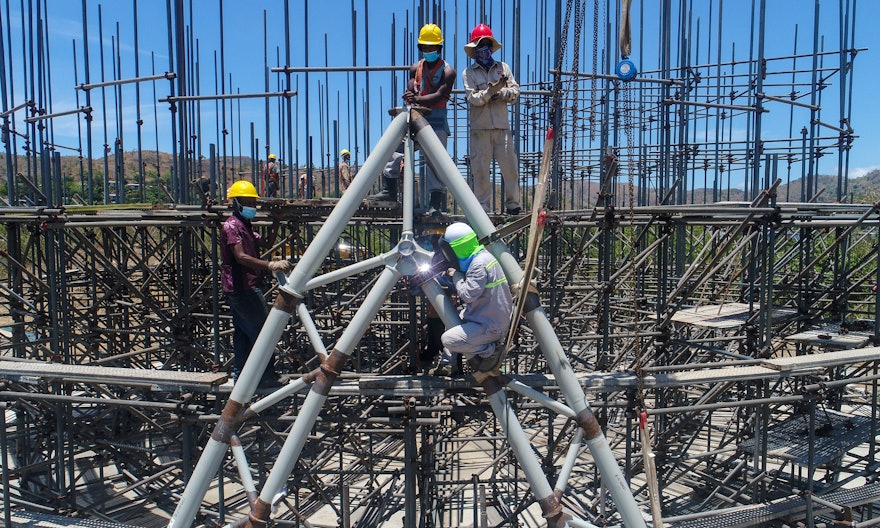2020 in photos: A year of solidarity and intense endeavor
BAHÁ’Í WORLD CENTRE — As a most challenging year comes to a close, the Bahá’í World News Service provides a collection of photographs from stories over the past 12 months on developments in the global Bahá’í community.
What can be seen through these and countless other efforts in societies around the globe is the expression of an essential truth: that the human family is one.
Before the pandemic
Volunteers from the village of Namawanga, Kenya, and the surrounding area joined together to undertake the construction of an 800-square-meter educational facility for their village.
At a “cultural café” in Sousse, Tunisia, organized by the country’s Bahá’í community, religious and civil society leaders were brought together to exchange ideas and explore insights about the advancement of women in the country.
A seminar series in Canada examined the important role of religion in the process of immigration to and settlement in the country.
A gathering co-hosted by the Bahá’í community of Australia brought together journalists and other social actors to explore how the media can play a constructive role in society.
Thirty village chiefs, or pradhans, gathered at a conference organized by the Bahá’í community of India in the village of Gapchariyapur, Uttar Pradesh, for a constructive discussion on their shared responsibility for the prosperity and the spiritual well-being of their people. The 30 pradhans represent some 380 villages in the region, comprising a total of 950 villages and around 1 million people.
At a conference in Kakenge, Central Kasai, the Bahá’ís of the Democratic Republic of the Congo brought together some 60 village and tribal chiefs—many of whom were on opposing sides of armed conflict only a year ago—to explore paths towards a society characterized by principles such as harmony, justice, and prosperity.
Chief Nkayi Matala of the Lushiku village (right) and Chief Mbindi Godée of the Ndenga Mongo village at a conference in Kakenge, Central Kasai, held by the Bahá’ís of the DRC. They described the gathering as “a remarkable step forward that opens up many new possibilities for realizing the unity of peoples and the prosperity of our communities.”
The Brussels office of the Bahá’í International Community (BIC) at a European Parliament panel discussion in January. The Brussels office led a discussion on how institutions and civil society actors can develop language that at once respects diversity and fosters shared identity.
The public health crisis emerges
As outbreaks of COVID-19 began to disrupt life in country after country, Bahá’í communities found creative means to continue to serve their societies while maintaining safety measures put in place by their governments. Seen here are families in Italy praying and creating messages of hope for their fellow citizens.
The Bahá’ís of Nepal had taken early action in March to update their fellow citizens on preventive health measures while taking care to keep a safe distance and use protective gear as needed.
As the health crisis continued, Bahá’í communities and institutions began coordinating an organized response. In India, Bahá’í Local Spiritual Assemblies in various parts of the country have been distributing food and other necessities to citizens whose economic situation has become precarious.
In one village in India, a construction company owned by local Baha’is used its trucks and other resources to bring food to 2,500 distressed households across 50 remote villages during the health crisis.
Children participating in moral education classes offered by the Bahá’ís of Luxembourg made cards and drawings to bring joy to health workers and others carrying out essential services during the health crisis.
Young people across the United States who have been engaged in Bahá’í community-building efforts swiftly responded to a host of needs arising in their communities. Seen here, a family in Rockwall, Texas, prepared masks for their neighbors.
Friendships built through the English Corner program in Vancouver, Canada—a Bahá’í-inspired initiative for English learners—became a source of support in difficult times.
People of all ages, especially youth, have found ways to uplift the spirits of their fellow citizens through music, podcasts, paintings and drawings, theatre, puppet shows, poetry, and digital designs. Such works have focused on revealing the beauty that exists in the world and conveying new perspectives on current circumstances.
Acts of devotion and generosity have come into greater focus in humanity’s collective life this year. In places where Bahá’í Houses of Worship stand, live broadcasts of devotional programs and online gatherings for collective prayer—such as the one pictured here from the House of Worship in Australia—have brought many people together, allaying anxieties and inspiring hope.
The House of Worship in Santiago, Chile, has continued to serve as a source of hope, offering online devotional programs. Seen here are volunteers who have been tending to the Temple site since its doors closed to public visitors according to public safety measures put in place by the government.
A group of youth in Soweto, South Africa, who have been participating in Bahá’í community-building endeavors seen here praying together.
In April amid the pandemic, when Cyclone Harold struck the northern islands of Vanuatu the degree of unity and collective action fostered through the educational activities of the Bahá’í community enabled many people to respond swiftly and to begin rebuilding and replanting.
FUNDAEC, a Bahá’í-inspired organization in Colombia, recognizing that the pandemic would have long-term ramifications, looked at how it could be of practical service to society at a time of dire need. Since March, it has assisted over 2,000 people across the country to become engaged in over 1,000 agricultural initiatives.
Pictured here is the construction of a “food tower” at the training center of the Kimanya-Ngeyo Foundation for Science and Education, a Bahá’í-inspired organization in Uganda whose programs have continued to raise capacity in specific areas of community development during the pandemic.
Teachers at a Bahá’í-inspired community school in Langathel, Manipur, India, distribute schoolwork to parents to carry out with their children at home as a precautionary measure during the health crisis. Bahá’í-inspired community schools in places with limited web accessibility have found creative ways of adapting to present circumstances and serving their students’ educational needs.
Despite the challenges facing all educational institutions, Nur University in Bolivia adapted quickly, ensuring that all of its students were closely engaged and not left to themselves. A unique feature of the university’s approach is that it promotes service to society as a critical element in one’s life. Pictured here is a student preparing an educational video on health and safety for distribution among students and the local community.
To assist university students in navigating questions about the direction in which the world is headed and their place in it, the Institute for Studies in Global Prosperity (ISGP) has been creating spaces, largely online, for young people to come together in focused discussions.
In the days after an explosion that rocked Beirut in August, a group of youth engaged in Bahá’í community-building efforts quickly met to make plans for assisting with relief and recovery. They created a volunteer network called the “Helping Hub” to coordinate the actions of people around them.
Radio stations operated by Bahá’í communities in several countries, including Radyo Bahá’í in the Philippines, have found a renewed purpose during the pandemic, acting as a source of critical information and an anchor of community life when other forms of interaction have been limited.
Chile Bahá’í Radio based in Labranza, Chile, has been in close dialogue, especially during the pandemic, with surrounding indigenous communities to ensure that programs speak to their needs and aspirations. Prayers in the indigenous Mapuche language are a part of regular broadcasts of Chile Bahá’í Radio.
A public statement released in June by the Bahá’í National Spiritual Assembly of the United States on racial prejudice and spiritual principles essential for progress toward peace has stimulated critical reflection across the country.
Parent University, a Bahá’í-inspired organization with decades-long experience of promoting racial equality in Savannah, Georgia, worked this year to build bridges between community members and representatives of local government, including by hosting constructive online discussion spaces to explore issues of equality and justice.
A reception held at Parliament House in Canberra in November marked the anniversary of the Birth of Bahá’u’lláh and centenary of the Bahá’í community in Australia. In a message for the reception, Prime Minister Scott Morrison stated: “People of the Bahá’í Faith contribute to our social good through the values of equality, truth and respect. These values mirror our national commitment to a rich and diverse multicultural, multi-faith society.”
The BIC launched a statement entitled “A Governance Befitting: Humanity and the Path Toward a Just Global Order” on the eve of the 75th anniversary of the United Nations, inviting UN officials, ambassadors of member states, non-governmental organizations, and other social actors to explore themes concerning humanity’s movement toward universal peace.
Shrine of ‘Abdu’l-Bahá
The beginning of this year saw the first steps being taken to prepare the site and lay the groundwork for the Shrine of ‘Abdu’l-Bahá. Coinciding with the start of construction, the mayor of ‘Akká and representatives of the city’s religious communities gathered to honor ‘Abdu’l-Bahá at a special ceremony.
Work on the construction of the Shrine has progressed this year with the approval of local authorities at each stage. By April work on the foundations was giving shape to an imprint of the design’s elegant geometry (top left). The foundations have now been completed, allowing the first vertical elements of the edifice to rise.
Progress of new Bahá’í Houses of Worship
The design for the local Bahá’í House of Worship to be built in Bihar Sharif was unveiled in April. Drawing on patterns found in the Madhubani folk art of Bihar and the region’s long architectural heritage, the temple’s design features a repeating pattern of arches.
The design for the national Bahá’í House of Worship to be built in the DRC was also unveiled this year. The design is inspired by traditional artworks and structures as well as natural features of the country. The House of Worship will embody the vibrant devotional spirit that has been fostered over the decades by the country's Bahá’ís.
Construction of the national Bahá’í House of Worship in the DRC was inaugurated in October with a groundbreaking ceremony on the site of the future temple in the presence of officials, religious leaders, and traditional chiefs.
Within two months of the groundbreaking for the national Bahá’í House of Worship in the DRC, excavation was completed for the main ring of the edifice’s foundations.
Prior to the pandemic, people of all ages were regularly gathering on the grounds of the local Bahá’í House of Worship in Matunda Soy, Kenya, to pray together and offer assistance with various aspects of the site’s upkeep.
Construction of the local House of Worship in Matunda Soy, Kenya, is now at an advanced stage of completion. Work on the roof and decoration of doorways and external walls is underway. A reception center and other ancillary buildings on the site are also nearing completion.
A virtual rendering of the design for the national Bahá’í House of Worship of Papua New Guinea (left) compared with recent progress on the structure (right).
Since the foundations of the House of Worship in Papua New Guinea were completed last December, work has progressed on an intricate steel structure for the central edifice that traces the unique weaving pattern of the exterior.
A companion article to this photo essay provides an overview of stories on developments in the global Bahá’í community this year.
